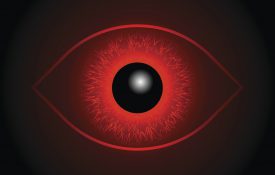-
Revisiting the ‘Hormone of Love’
The Huffington Post: It's been more than a decade since oxytocin was first heralded as the "hormone of love" -- a distinction that came with optimistic predictions for future drug therapies. It was just a matter of time before an oxytocin nasal spray would be available on pharmacy shelves, with the potential to cure shyness and dampen anxiety and, perhaps, even treat the social deficits of autism. The excitement was not confined to the popular press. The early animal studies, which showed a link between oxytocin and sociability, generated considerable interest in scientific circles as well, and indeed led to a decade of intense study of the hormone.
-

Blood Vessels in the Eye Linked With IQ, Cognitive Function
The width of blood vessels in the retina may indicate brain health years before the onset of dementia and other deficits.
-
New Research From Psychological Science
Read about the latest research published in Psychological Science. Vividness of the Future Self Predicts Delinquency Jean-Louis van Gelder, Hal E. Hershfield, and Loran F. Nordgren Does failure to think about the future lead people to engage in delinquent behavior? Participants wrote a letter to themselves either 20 years or 3 months in the future. They were then asked how they would respond to several scenarios involving committing delinquent acts. Participants who wrote letters to a more distant future self made fewer delinquent choices than did those who wrote to a less distant future self.
-
Is Google Glass Dangerous?
The New York Times: NEWS about Google Glass is everywhere these days, and so are its critics. Some charge it only with fashion crimes. Others worry about invasion of privacy: when out on a date with a Glass wearer, you won’t know if they are recording you — or Googling “seduction tips,” for that matter. Nonetheless, most agree that a smartphone-linked display and camera placed in the corner of your vision is intriguing and potentially revolutionary — and like us, they want to try it. But Glass may inadvertently disrupt a crucial cognitive capacity, with potentially dangerous consequences.
-
Teenagers Are Wired for Peer Approval, Study Says
Education Week: It's true: Adolescents really do want to jump off a bridge just because their friends are doing it. But new research suggests changes in how teenagers view risks and rewards around their peers are not only a critical part of their development, but may also provide a key to motivating them. From the DARE anti-drug program to abstinence-only curricula, education has been full of high-profile attempts to curtail risky behavior that have met with mixed success at best. The emerging evidence suggests, however, that changing teenagers' behavior demands accounting for their social circles, not just asking them to stand up to their peers.
-
Technology Use Before Bed Linked with Increased Stress
LiveScience: Using technology before bed may be stressing us out, preliminary results from a new study suggest. In the study, people who surfed the web or sent a text message within two hours of going to bed reported higher levels of stress than those who didn't engage in these behaviors. However, the link was not seen with all forms of technology: neither emailing nor watching TV before bed was linked with greater stress. Read the whole story: LiveScience

